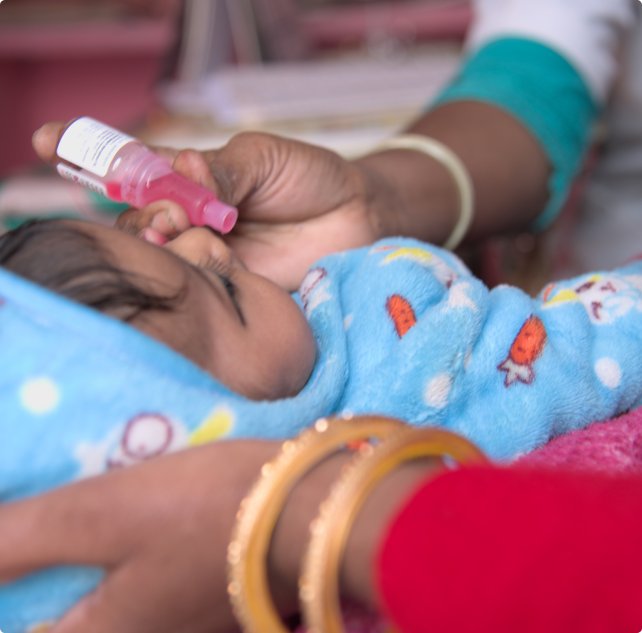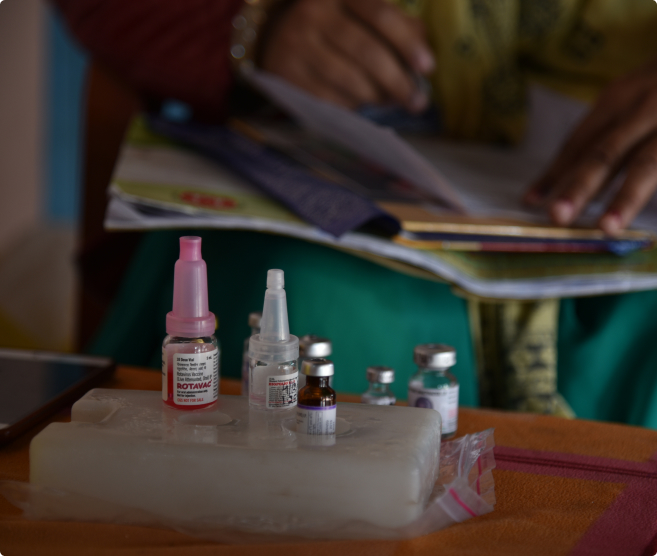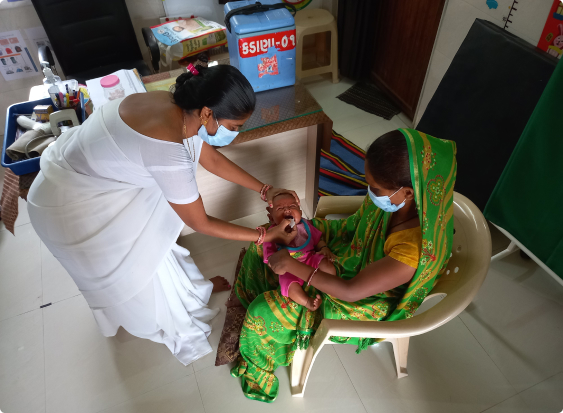
Rotavirus is the leading cause of severe diarrhea among young children under the age of five and the most common cause of severe diarrhea in low and middle-income countries. As of 2013 (before Rotavirus Vaccine introduction in India), India accounted for 22% of all under-5 Rotavirus deaths worldwide. According to the Indian National Rotavirus Surveillance Network, Rotavirus was responsible for nearly 3.3 million outpatient visits, 0.88 million hospitalizations, and 78,000 deaths yearly.

To address the high burden of childhood disease and deaths from diarrhea due to Rotavirus infection.
To strengthen the national routine immunization system.
To reach vulnerable communities with appropriate messaging and follow-up.
As a lead partner in the Rotavirus vaccine introduction, JSIPL provided
techno-managerial support to the Government of India and the states in the pan-India roll-out of RVV in collaboration with other immunization partners.
A phased roll-out was planned under the UIP with close monitoring of field implementation, coverage reporting, program review, and post-introduction evaluation. This included the development of operational guidelines,
vaccine-specific training packages, and cascade training for program managers and health workers on key operational aspects, including cold chain, Adverse
Events Following Immunization (AEFI) surveillance and management, communication activities, data management, coverage monitoring, and evaluation. JSIPL also documented learnings and best practices while providing technical support to national and state teams on all aspects of RVV introduction.


The three doses of the Rotavirus vaccine provided to the entire birth cohort of 26 million children every year are expected to save countless lives.
India is well positioned to guide other countries in introducing RVV and other new vaccines.